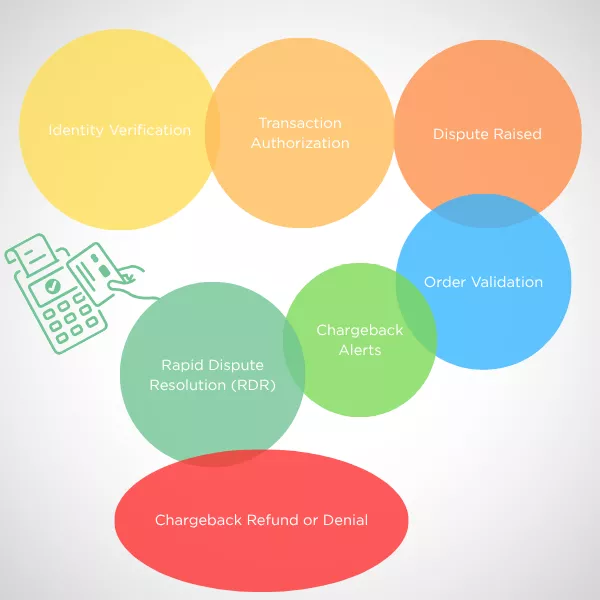Large enterprises worldwide accept an average of 4.6 different payment methods, while smaller businesses typically accept 3.9 different methods.[1]Statista. “Average Number of Payment Methods Accepted by E-Commerce Merchants Worldwide in 2024.” Accessed June 9, 2025. Although the difference may seem small, managing diverse payment options can be resource-intensive. Smaller businesses can gain an edge by enlisting third-party help, which can streamline the implementation of new payment solutions. This is where independent software vendors (ISVs) fit into the payments landscape.
Below, we cover the concept of ISV payments, the benefits of partnering with an ISV for payments, and how to utilize this model to increase revenue streams within your small businesses.
TABLE OF CONTENTS
Key Takeaways
- An ISV builds software to support specific business needs on established platforms.
- ISVs enable embedded finance by integrating custom payment solutions directly into existing software.
- By partnering with payment processors, ISVs can deliver more tailored solutions for platforms while reducing operational burdens.
What Is an Independent Software Vendor (ISV)?
An ISV develops and sells software independently of hardware manufacturers and operating systems. These vendors typically solve unique business challenges by providing industry-specific booking, point-of-sale, or analytics tools. These solutions often integrate with broader platforms. A general example is software like DocuSign, which integrates directly with Microsoft Teams to offer platform-specific enhancements.
Meanwhile, ISV in payments have become essential to powering embedded payments, which are projected to reach up to $35 trillion in addressable transaction volume opportunity.[2]Bain and Company. “Riding the New Wave of Integrated Payments“. Accessed June 9, 2025. By embedding payment functionality directly into their software, ISVs allow businesses to access:
- A payment gateway for customers
- In-platform payment management
- Inventory and accounting integration
- Customer relationship management (CRM) insights
This all-in-one approach creates a streamlined experience for both customers and internal teams.

The Role of ISVs in the Payments Ecosystem

While ISV and SaaS are not synonymous, many ISVs today distribute their software using a SaaS model. ISV refers to the role (software creator), whereas SaaS describes the delivery model (cloud-based subscription). This gives the ISV greater control over payment gateway integration, among other aspects of the offering.
Typically, ISV payments address niche industry needs by building software customized for a specific workflow. For instance, a spa might offer both online and in-person payments, but require an advanced booking tool to manage the massage therapists’ time. An ISV might connect the booking tool with a digital point-of-sale system to allow online appointments, deposits, and complete in-person payments after the massage all in one ecosystem.
Essentially, ISVs enable embedded payments by integrating payment processing directly into platforms, leveraging existing hardware tools to create a more custom payment model for your business.
How ISVs Power Embedded Payments
Embedded payments let end users complete transactions without leaving the software platform they’re using. This improves user experience, increases transaction speed, and helps businesses control the entire customer journey. Through these tailored payment processing solutions, ISVs can gain powerful “stickiness” as customers no longer switch from software not uniquely created to suit their needs.
Powering embedded payments can also provide additional revenue streams for other software-focused small businesses through simple transaction monetization. We’ll dig into this element of ISV payments for small businesses in the following sections.
Why ISVs Partner With Payment Processors

While software providers may build basic payment integrations, ISVs take it further by offering industry-specific workflows, regulatory compliance, and data management. This streamlines payments, automates data management, and provides a better and safer customer experience. However, building a payment stack from scratch risks premature direct consumer rollouts that fail to resolve problems or risk exposure to compliance and security issues.
By partnering with a payment provider, ISVs can integrate payment processing into their software without developing their own. This lets ISVs:
- Add robust payment features without developing them altogether
- Reduce compliance and security risk
- Leverage features like encryption, fraud detection, and know your customer (KYC) protocols
This collaboration enables ISV payments to offer reliable, scalable solutions while focusing on their core software.
The Benefits of ISV Partner Programs
Partnering with payment processors gives ISVs and their customers a range of benefits, such as:
- Custom Solutions: By partnering with payment solution technology, ISVs can gain dedicated onboarding, technical support, and white-label tools to build deeply integrated systems tailored to specific industry needs without requiring additional development.
- Omnichannel Payment Support: People utilize more payment methods today than ever before. ISVs can leverage payment partners to support various payments, including credit cards, debit cards, electronic checks, digital wallets, and QR codes, among others. Partnerships expand payment method capabilities without requiring custom infrastructure.
- Improved Data Management: Partnerships can improve how ISVs automatically sync transaction data with end-customer business analytics, accounting, and inventory systems. After each sale, the system adjusts inventory levels and records revenue in financial reports to reduce the likelihood of inventory discrepancies and support better business analytics.
- Compliance and Security: While ISVs may have built-in security protocols that can adapt to support an industry’s specific custom compliance needs, partnering with a payment provider can extend those compliance and security benefits to custom payment solutions. ISVs can benefit from features like end-to-end encryption and fraud detection systems to protect sensitive customer information.
- Flexibility and Adaptability: Partner programs enable ISVs to offer recurring billing, split payments, loyalty rewards, discounts, and other features tailored to vertical use cases. All that flexibility can help ISVs provide seamless solutions for end customers and increase retention.
- Seamless Monetization: By partnering with a payment solution, ISVs can create revenue streams powered by real-time consumer payments.
Getting Started with PaymentCloud’s ISV Program
ISV payments are reshaping how businesses accept and manage transactions. Through embedded payment solutions, ISVs empower smoother customer journeys and stronger back-end integration. A partnership with PaymentCloud lets ISVs access top-grade embedded payment solutions, offering even more custom solutions without the hassle of building your stack own independently. Explore PaymentCloud’s ISV Program today to discover how we can support your business and clients.
FAQs About ISVs
What is an example of an ISV?
There are many examples of ISVs in the marketplace. The most widely known include Salesforce, Shopify, Slack, and Zoom. Ultimately, ISVs are software integrations developed for an overarching solution.
What is the difference between ISV and SaaS?
An ISV is a software creator that can choose different delivery models. SaaS refers specifically to cloud-based software delivery. Many ISVs now offer SaaS products, but not all SaaS providers are ISVs.
What is the difference between ERP and ISV?
Enterprise Resource Planning (ERP) is a comprehensive platform that manages business functions like finance and HR. ISVs create software that may offer ERP integration to enhance systems or solve specific problems.
What is the difference between ISV and ISO?
An ISV builds software with integrated payments. An ISO (Independent Sales Organization) helps merchants set up and manage payment processing accounts. ISVs focus on software, while ISOs focus on payment infrastructure and support.



